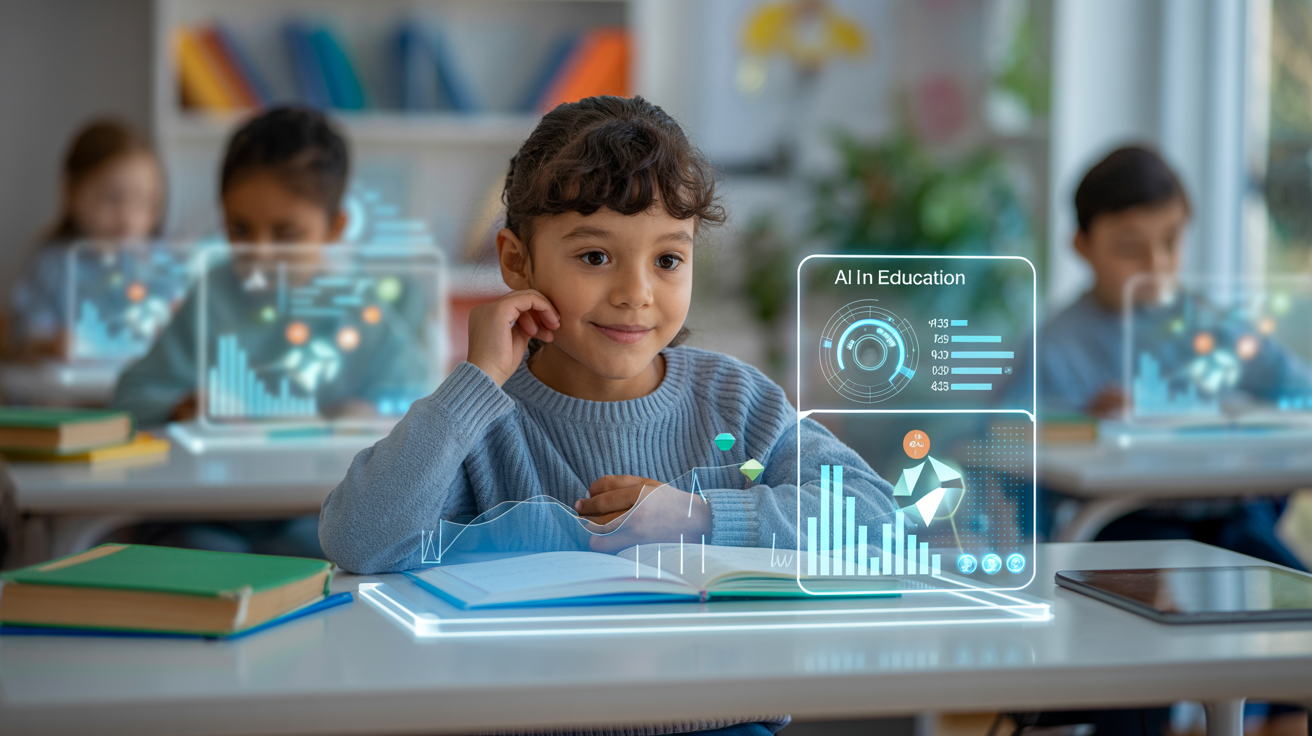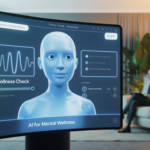In recent years, Artificial Intelligence (AI) has emerged as a transformative force across many industries, and education is no exception. The integration of AI into educational systems promises to revolutionize how students learn, how teachers instruct, and how institutions manage educational outcomes. One of the most exciting advancements driven by AI in education is the development of personalized learning experiences. By tailoring education to the unique needs, abilities, and learning styles of individual students, AI is creating a more effective, engaging, and inclusive learning environment. This article explores the concept of AI-powered personalized learning, its benefits, challenges, and the future it holds for education.
Understanding Personalized Learning
Personalized learning refers to educational approaches that customize learning for each student’s strengths, needs, skills, and interests. Unlike traditional one-size-fits-all instruction, personalized learning adapts the pace, content, and style of teaching to better suit individual learners. The goal is to optimize learning efficiency, engagement, and retention by focusing on the student as a unique learner rather than applying uniform teaching strategies to an entire class.
Historically, personalized learning was difficult to achieve on a large scale because it required significant time and resources from educators to understand and address each student’s individual needs. However, advances in AI technologies have made personalized learning more feasible and scalable.
How AI Powers Personalized Learning Experiences
AI technologies employ algorithms, data analytics, and machine learning models to analyze large volumes of educational data. This data includes student performance, engagement levels, learning behaviors, preferences, and even emotional states. Based on this data, AI systems can adapt educational content and instructional methods to create customized learning pathways. Some key AI applications in personalized learning include:
1. Intelligent Tutoring Systems (ITS)
Intelligent Tutoring Systems use AI to simulate one-on-one tutoring. These systems provide tailored feedback, hints, and explanations based on the learner’s responses and progress. For example, if a student struggles with a math concept, the ITS can offer additional exercises, simplified explanations, or visual aids specific to that student’s difficulty level.
2. Adaptive Learning Platforms
Adaptive learning platforms dynamically adjust the difficulty, sequence, and presentation of educational content based on real-time student data. These platforms continuously assess the learner’s knowledge and skills and modify the curriculum to address gaps or accelerate progress. This adaptability ensures that students remain challenged without becoming overwhelmed.
3. AI-Driven Content Recommendations
Similar to recommendation systems used by streaming services, AI can suggest learning materials, videos, articles, or exercises tailored to each student’s interests and academic needs. This targeted content helps maintain motivation and supports diverse learning styles.
4. Natural Language Processing (NLP) and Conversational Agents
AI-powered chatbots and virtual assistants utilize NLP to interact with students in a conversational manner. These agents can answer questions, provide explanations, and guide learners through complex topics, offering personalized support anytime and anywhere.
5. Predictive Analytics for Early Intervention
By analyzing patterns in student data, AI can predict which learners are at risk of falling behind or dropping out. Educators can use these insights to intervene proactively, offering additional support or resources before problems escalate.
Benefits of AI-Powered Personalized Learning
1. Increased Engagement and Motivation
Personalized learning taps into each student’s interests and learning preferences, making education more relevant and engaging. AI can create interactive and gamified content that keeps learners motivated and invested in their progress.
2. Enhanced Learning Outcomes
By adapting instruction to individual needs, AI helps students learn more efficiently and retain information longer. Personalized feedback and targeted practice ensure mastery of concepts before moving on to new material, promoting deeper understanding.
3. Support for Diverse Learners
AI can accommodate diverse learning styles, languages, and abilities. For students with disabilities or language barriers, AI-driven tools provide tailored accommodations such as speech-to-text, translations, or visual aids, fostering greater inclusivity.
4. Empowering Educators
AI does not replace teachers but rather enhances their capabilities by handling routine tasks like grading and data analysis. Educators gain insights into student performance and learning patterns, allowing them to focus on mentoring, personalized support, and curriculum design.
5. Scalability and Accessibility
AI-powered personalized learning can reach students in remote or underserved areas, breaking down geographical and economic barriers. Online platforms powered by AI provide quality education resources accessible anytime, anywhere.
Challenges and Considerations
While AI offers tremendous promise for personalized learning, it also presents several challenges:
1. Data Privacy and Security
The effectiveness of AI depends on collecting and analyzing large amounts of personal data, raising concerns about student privacy and data security. Educational institutions must ensure compliance with regulations and adopt stringent data protection measures.
2. Equity and Access
Not all students have equal access to digital devices or reliable internet, which can exacerbate existing educational inequalities. Efforts are needed to provide equitable access to AI-powered learning tools.
3. Algorithmic Bias
AI systems can unintentionally perpetuate biases present in their training data, leading to unfair treatment of certain groups. Developers must prioritize fairness, transparency, and ongoing evaluation to minimize bias.
4. Teacher Training and Acceptance
Successful integration of AI requires that educators are trained to effectively use these technologies and understand their pedagogical implications. Resistance to change and lack of digital literacy can hinder adoption.
5. Over-Reliance on Technology
While AI can augment learning, over-dependence on technology risks reducing human interaction, which is vital for social-emotional development and critical thinking skills. Balanced approaches are essential.
The Future of AI in Personalized Education
The future of AI in education is bright and rapidly evolving. Advances in AI, such as emotional recognition, augmented reality (AR), and virtual reality (VR), will further enrich personalized learning experiences. Imagine virtual tutors that sense a student’s frustration and adjust their teaching style accordingly or immersive AR environments tailored to individual learning objectives.
Moreover, AI will increasingly facilitate lifelong learning by helping individuals continuously acquire new skills aligned with their career goals and interests. Educational ecosystems will become more interconnected, enabling seamless data sharing and personalized guidance throughout a learner’s journey.
Governments, institutions, and technology providers must collaborate to develop ethical frameworks, ensure equitable access, and invest in teacher training to fully realize AI’s potential in education.
Conclusion
Artificial Intelligence is reshaping education by enabling personalized learning experiences that cater to each student’s unique needs and preferences. Through intelligent tutoring systems, adaptive learning platforms, content recommendations, and predictive analytics, AI helps create more engaging, effective, and inclusive education. While challenges around privacy, equity, and bias remain, the thoughtful integration of AI holds the promise of transforming education for the better—empowering learners and educators alike to thrive in a rapidly changing world.
Personalized learning powered by AI is no longer a distant vision but a present reality, paving the way for a future where education truly adapts to every individual.


